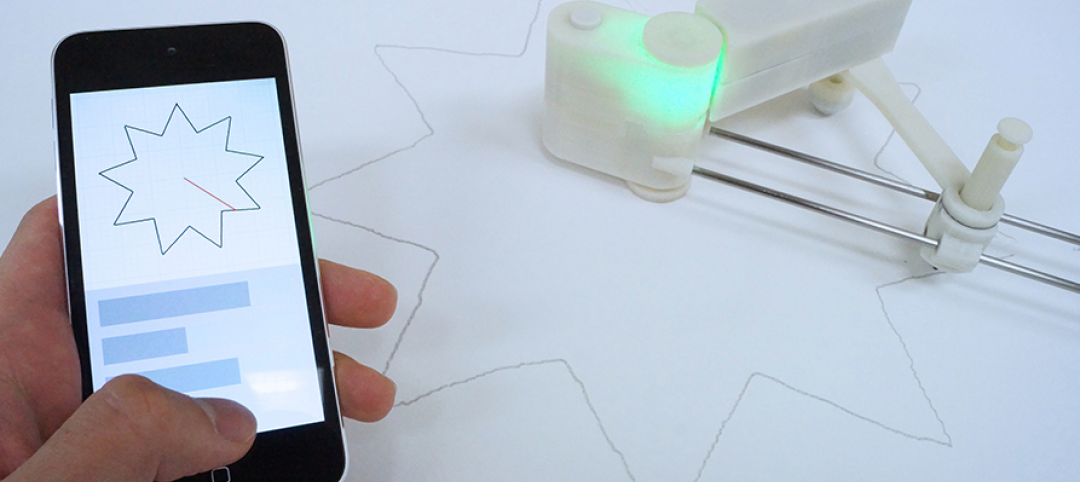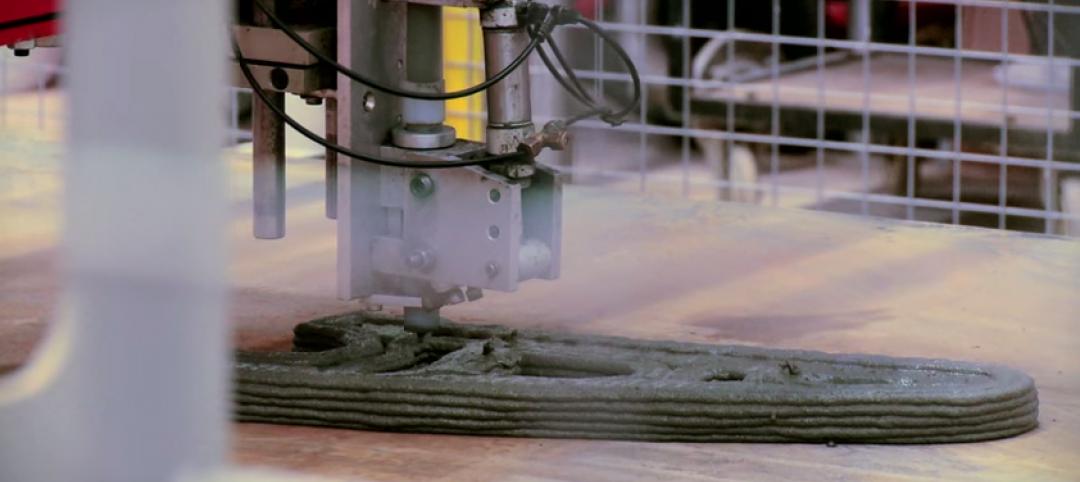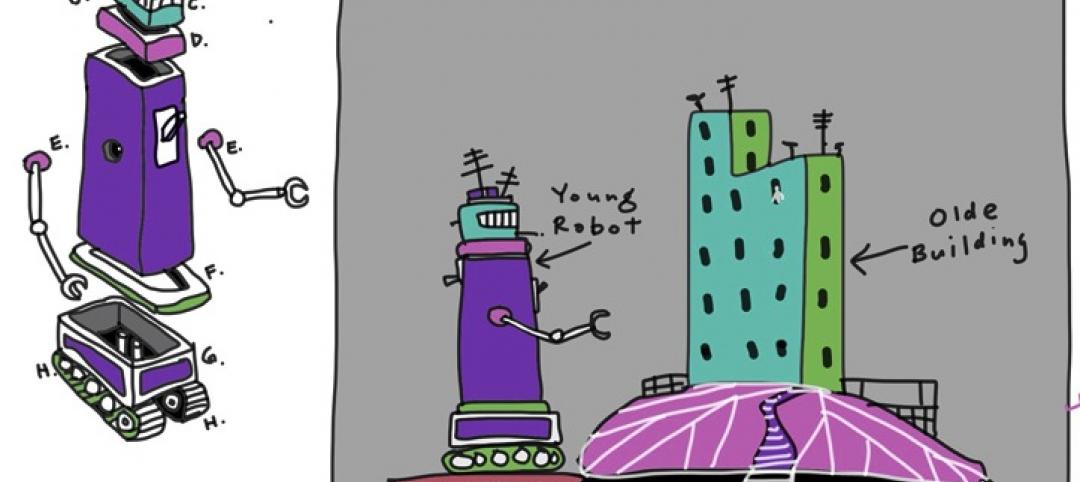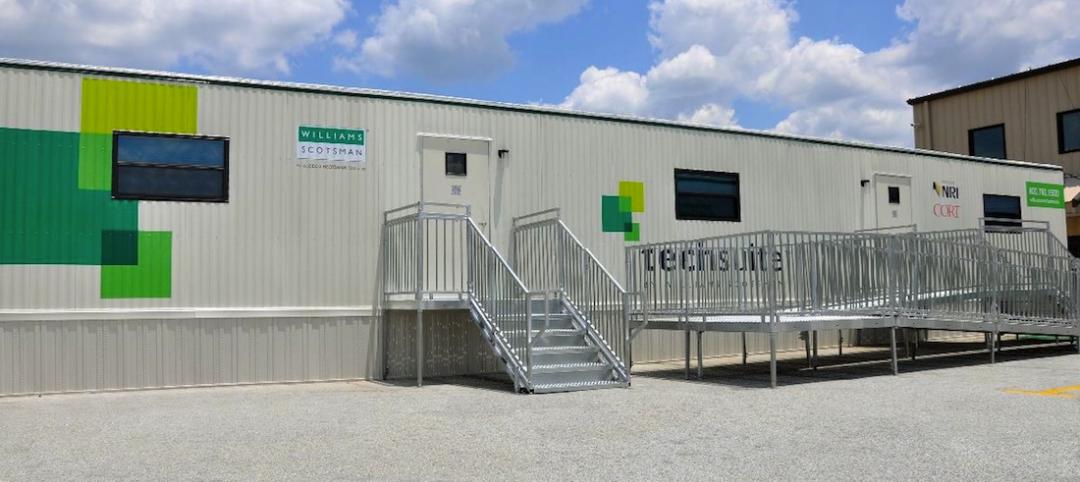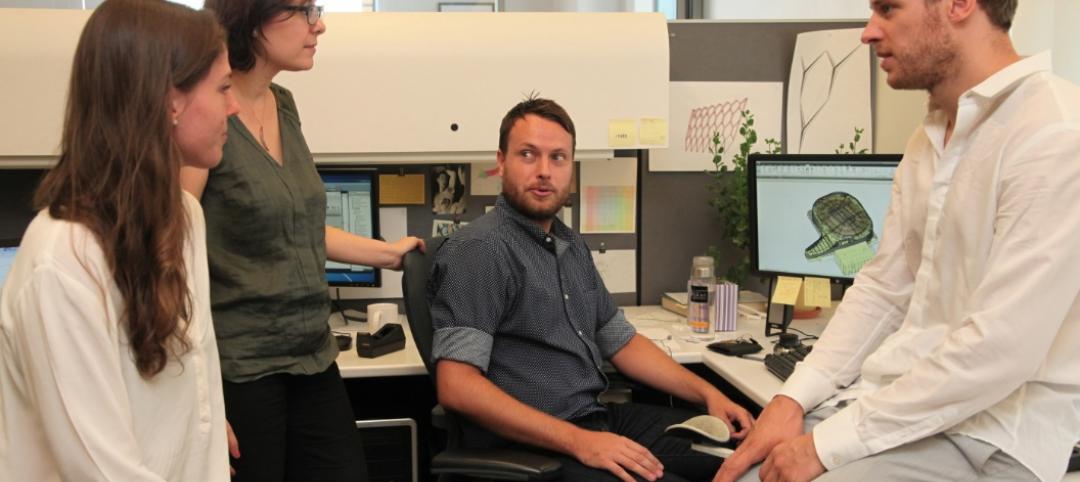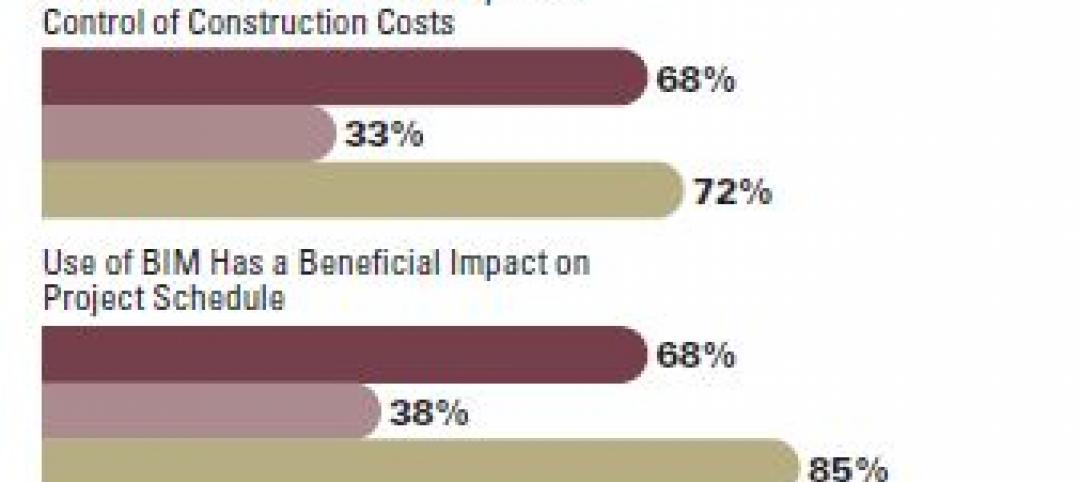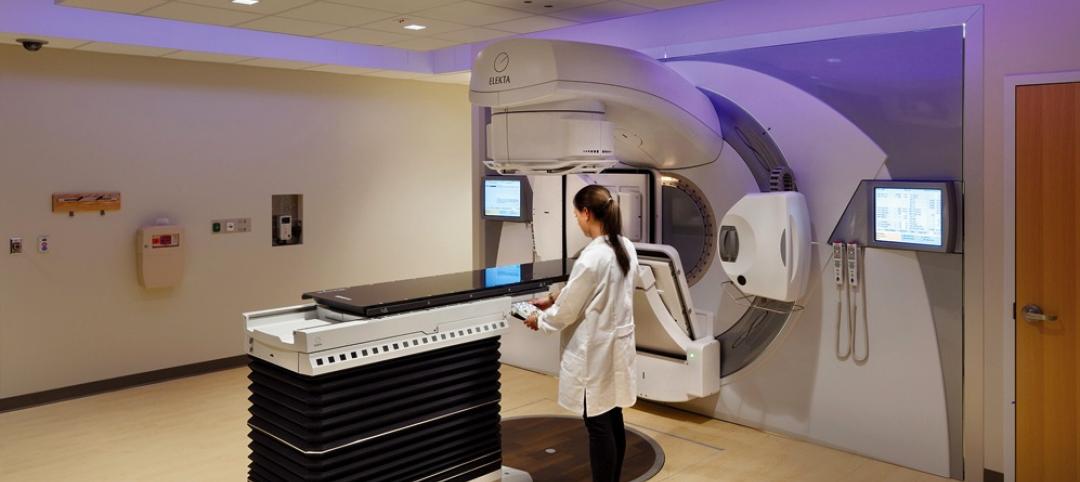Two innovations—program manager Gafcon’s SharePoint360 project management platform and a new BIM “wall creator” add-on developed by ClarkDietrich Building Systems for use with the Revit BIM platform and construction consultant—show how fabricators and owner’s reps are stepping in to fill the gaps between construction and design that can typically be exposed by working with a 3D model.
WEB BIM MANAGEMENT: SAVING TIME AND MONEY
Gafcon manages some of the biggest construction projects in Southern California as an owner’s representative and construction consultant. “Very significant time and money can be saved by combining cost, schedule, inspections, drawings, and financial information in one system accessed through a Web portal,” said CEO Yehudi “Gaf” Gaffen. “We found that a lot of contractors and design firms are involved in part of the building process to make their own delivery efficient, but there really wasn’t a tool devoted to the entire process, from design to construction.”
ALSO SEE: The world’s first building made from carbon-fiber reinforced concrete starts construction in Germany
In 2006 Gafcon created a sister company, SharePoint360, based in San Diego. Utilizing Microsoft’s SharePoint Web collaboration platform (with significant customization for building owner and construction company clients), SharePoint360 provides a portal to tie together all the AEC software used on a project. Industry-specific applications such as Expedition program management software from Primavera Systems can integrate data with SharePoint360, making that information available to all team members within a SharePoint site without purchasing additional licenses. Using SharePoint360’s model viewer, all Building Team members can view a Revit model no matter what stage of design or construction the project is in.
“We created an interface with Revit that enables owners and facilities managers to get the necessary data from Revit models for their needs and purposes without needing a Revit license,” Gaffen said. “Building engineers in the field can access the model (through the Mobilize360 mobile app) and navigate through it in the field to isolate problems using GPS coordinates. You can pull all documentation (including model and shop drawings), view it from the field, and mark it up in a tablet PC and automatically transfer that information back to the rest of your team.”
Because SharePoint360 is not a proprietary platform, any individual building project’s SharePoint website can be customized for that particular project’s needs. Most of the hosted sites that the company runs are turned over to building owners and facility managers after construction is completed, providing the owner with a record for later use in operations and maintenance.
“The knowledge of using SharePoint’s engine to drive specific applications is the intellectual property we have related to AEC,” Gaffen said. The contracts stipulate that the hosted sites can be transferred to another hosted platform.
SharePoint was the program management tool used for the renovation and expansion of three community colleges and six continuing education campuses in the San Diego Community College District, a $1.5 billion construction program that began in 2007. Using SharePoint360 reduced the number of software licenses necessary for the project by hundreds.
SharePoint360’s AEC industry-specific services include an NSPEC inspection module, intranet and extranets for building projects that offer real-time access to information from any location. The resulting business data allows Gafcon and its clients to track and report on important project information, including billable hours and employee progress. By analyzing this data project managers can run tighter ships as well as collaborate better.
Because SharePoint360 is not a proprietary platform, said Gaffen, “You’re not held hostage by one software vendor. The platform is agnostic and can tie into any line of business.”
REVIT ADD-ON AUTOMATES WALL CREATION
ClarkDietrich Building Systems, headquartered in West Chester, Ohio, is the largest manufacturer of cold-formed steel framing in the U.S. They also produce structural studs and joists, metal lath and accessories, and shaft wall studs and track. While the company maintains it can provide any cold-formed steel frame design necessary for commercial and residential construction, it kept running into problems with projects modeled in Revit, with information in a 3D model, that either wasn’t used properly, conflicted with itself, or had specifications made during construction.
“Everyone is making custom shapes and it’s all test-based,” based on STC or UL/fire rating, said Robert Warr, PE, director of engineering services at ClarkDietrich. “Small things like adding insulation or adding resilient channels can change your whole framing system profile.” Warr says his group talked to “some of the bigger architecture firms” and came away with the understanding that they wanted to put a high level of detail in their wall objects but needed an easier tool to work with than was currently available.
There are hundreds of different wall types being used in steel framing today; the ones that do have 3D BIM objects, ones that can be dropped into a model during design, were created by architects and BIM managers whose job it is to maintain Revit libraries for their entire firms. Consequently, accuracy across several projects was not always a priority. Warr and his team came up with a BIM Wall Creator add-on for Revit that’s database-driven and asks designers questions up front before construction, to eliminate a lot of what used to be a gray area.
“Information often doesn’t match between an STC rating and a fire rating,” Warr said. The new tool “gives architect an accurate picture for both ratings,” he says.
BIM Wall Creator allows you to specify if you want to design a wall for limiting height, an STC rating, a UL rating, a LEED specification, or some combination of these factors. The wall is then built inside Revit by the add-on as a new object. All information about wall height, STC rating, UL rating, and LEED is saved into the model for use downstream by fabricators and contractors.
The Wall Creator is a free add-on for Revit and has a link to the fabricator’s product submittal system. ClarkDietrich is developing additional features, such as shaft wall framing, for 2012 release. BD+C
Related Stories
| Dec 5, 2014
Plotting on the go: 3D-printed mechanical compass can print CAD drawings with high precision
Design student Ken Nakagaki has adapted a device to work with CAD software to replicate digital files on paper.
| Dec 1, 2014
Skanska, Foster + Partners team up on development of first commercial 3D concrete printing robot
Skanska will participate in an 18-month program with a consortium of partners to develop a robot capable of printing complex structural components with concrete.
| Nov 26, 2014
How the 'maker culture' brings the power of design to life
Most people affiliate the maker culture with metal working, welding, ceramics, glass blowing, painting, and soldering. But it also includes coding and online content creation, writes Gensler’s Douglas Wittnebel.
Sponsored | | Nov 26, 2014
Virtual reality in 3D models, iPhone thermal imaging: Inside one very cool tech toybox
A little over a year ago, I embarked on a search to find individuals in the AEC space who were putting new hardware to work in the field.
| Nov 18, 2014
New tool helps developers, contractors identify geographic risk for construction
The new interactive tool from Aon Risk Solutions provides real-time updates pertaining to the risk climate of municipalities across the U.S.
Sponsored | | Nov 12, 2014
Williams Scotsman plugs into the jobsite
Many of our customers conduct important business from their temporary modular jobsite office and most require access to technology to get their job done effectively and efficiently. SPONSORED CONTENT
| Nov 5, 2014
AEC firms leverage custom scripts to bridge the ‘BIM language gap'
Without a common language linking BIM/VDC software platforms, firms seek out interoperability solutions to assist with the data transfer between design tools.
| Nov 3, 2014
How facility owners can make the most of BIM
More and more facility owners are seeing the benefits that building information modeling can bring to their projects, according to a new McGraw Hill Construction SmartMarket Report, “The Business Value of BIM for Owners.”
| Oct 15, 2014
Drones may soon assist code inspectors for construction in the UAE
The United Arab Emirates’ Ministry of Labour announced that they will start using drones to help inspectors record when construction sites are breaking laws.
| Oct 13, 2014
Debunking the 5 myths of health data and sustainable design
The path to more extensive use of health data in green building is blocked by certain myths that have to be debunked before such data can be successfully incorporated into the project delivery process.



